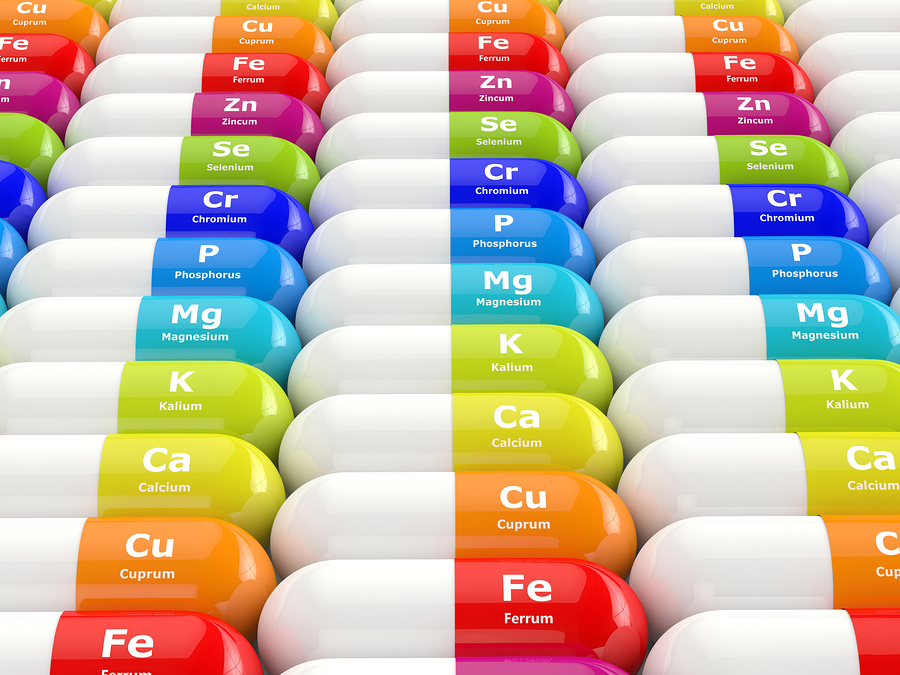- Make It Yourself Lavender Heart-Shaped Bath Bombs!
- 20 Things You Never Knew About “Down There”
- 12 Best Foods For Those Suffering From Arthritis Pain
- 12 Personal Hygiene Mistakes Almost Everyone Makes (Mom Never Told You About #4!)
- 15 Medicinal Plants And Herbs From The Cherokee People
- 12 Mind-Blowing Benefits Of Drinking Coconut Water During Pregnancy
- 12 Outstanding Winter Foods That Won’t Fatten You Up Like A Christmas Turkey
This Deficiency Is Linked To Hearing Loss, And Here Are Tips On How To Protect Yourself!

Photo credit: bigstock.com
Iron deficiency, anemia otherwise known, is a condition that affects about 1.62 billion people around the world, according to data from the World Health Organization (WHO). The number remains far too high to this day, despite notable efforts by the WHO and other organizations to provide adequate nutrition. It doesn’t only happen in impoverished regions either; many people living in developed countries also suffer iron deficiency. Some of this is due to medical conditions, but many other cases are caused by poor nutrition.
New research has found that iron deficiency can be linked to even more serious conditions like hearing loss. Presented here is the guide to understanding the findings, as well as practical changes to your diet (the list is presented below) you can use to guard against anemia and anemia-induced hearing loss.
Researchers at the Penn State Milton S. Hershey Medical Center in Hershey, Pennsylvania wanted to discover whether there was a link between certain kinds of hearing loss and iron deficiency. The researchers participating in the study examined the medical records of some 300,000 adults in the Hershey, Pennsylvania region. They included both male and female adults of all ages (21 to 90 years old), although the average age was 50. It was an enormous amount of information to sift through, but the question remained: Was there a link or association between inadequate iron and hearing loss? Soon, a pattern began to emerge.
The researchers and scientists found that adults with iron deficiency were 2.4 times more likely to develop “combined hearing loss” as people with normal, healthy levels of iron. They were also 1.8 times more likely to develop what is referred to as “sensorineural” hearing loss.
There are different kinds of hearing loss: Sensorineural hearing loss is caused by damage to the inner ear, brain, or nerves connecting the two. There is also conductive hearing loss, which is when sound simply cannot travel through the ear properly, and the aforementioned “combined” hearing loss, which, as the name implies, is a combination of the two forms. (The study found no link between anemia and pure conductive ear deficiency.)
It is believed that an iron deficiency is connected to blood disorders that can damage delicate blood vessels in the ear. When this happens, sensorineural hearing loss can occur.
Now, it is important to note that this was not a study in a lab to determine a definitive link, but an examination of existing medical records. While it is not conclusive proof of a connection, there is definitely an association. It is statistically significant and definitely warrants further study.
Continue to Page 2

Photo credit: bigstock.com
How to Protect Yourself from Hearing Loss Associated with Iron Deficiency
- The simplest way to guard against iron deficiency and conditions associated with it, like these forms of hearing loss, is to simply eat a better diet. Iron-rich foods include red meat such as beef, bison and liver; peas and beans; and many types of seafood. Other foods include fortified cereals and grains (think Total breakfast cereal), and dried fruits.
- One great source is dark, cruciferous (leafy green) vegetables like kale, collard greens, and spinach. Fun fact: The old joke of Popeye the sailor man eating his spinach to become super-strong is based off flawed scientific findings regarding its iron content. While the original calculations were way too high, iron is in fact an excellent source of the essential mineral.
- Eating foods with plenty of vitamin C can help your body absorb iron more efficiently, so throwing in a few oranges or grapefruits certainly wouldn’t hurt. Those leafy greens are also great for this, since they are very rich in vitamin C as well.
- One alternative if you are in a situation where eating healthy simply is not an option is to take iron supplements, where are widely available and relatively inexpensive. Iron can be taken on its own, or as part of a multivitamin, but if you suffer from an actual deficiency, you should talk to a doctor to get the best advice on how to handle your anemia.
HAVE A LOOK: Are You in Danger of Losing Your Hearing? Infographic
Hearing loss associated with iron deficiency can be a debilitating condition for those who live with it. By making these simple changes to your lifestyle, you can raise your iron levels and reduce your risks of developing anemia-related conditions.
References:
































